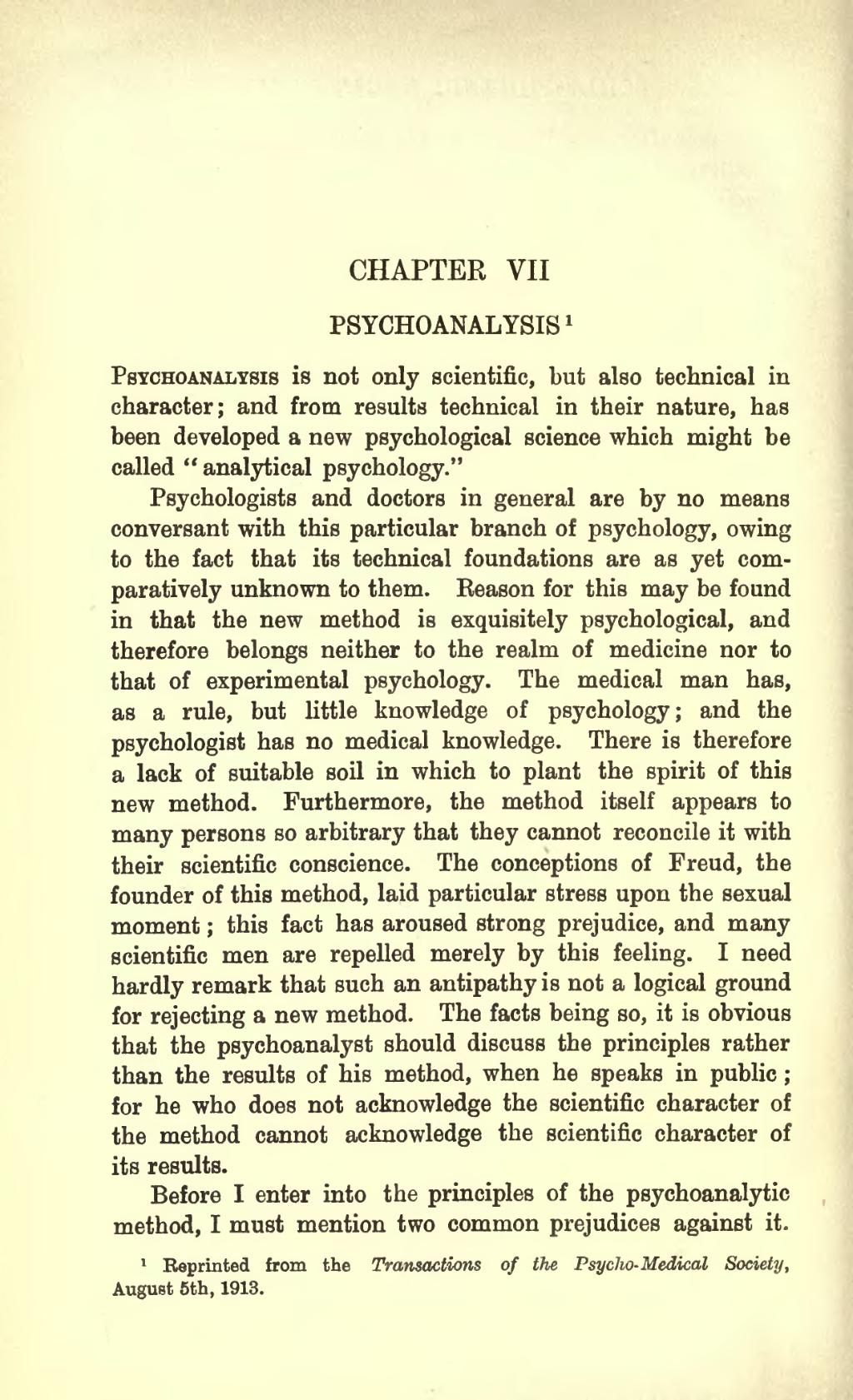CHAPTER VII
PSYCHOANALYSIS[1]
Psychoanalysis is not only scientific, but also technical in character; and from results technical in their nature, has been developed a new psychological science which might be called “analytical psychology.”
Psychologists and doctors in general are by no means conversant with this particular branch of psychology, owing to the fact that its technical foundations are as yet comparatively unknown to them. Reason for this may be found in that the new method is exquisitely psychological, and therefore belongs neither to the realm of medicine nor to that of experimental psychology. The medical man has, as a rule, but little knowledge of psychology; and the psychologist has no medical knowledge. There is therefore a lack of suitable soil in which to plant the spirit of this new method. Furthermore, the method itself appears to many persons so arbitrary that they cannot reconcile it with their scientific conscience. The conceptions of Freud, the founder of this method, laid particular stress upon the sexual moment; this fact has aroused strong prejudice, and many scientific men are repelled merely by this feeling. I need hardly remark that such an antipathy is not a logical ground for rejecting a new method. The facts being so, it is obvious that the psychoanalyst should discuss the principles rather than the results of his method, when he speaks in public; for he who does not acknowledge the scientific character of the method cannot acknowledge the scientific character of its results.
Before I enter into the principles of the psychoanalytic method, I must mention two common prejudices against it.
- ↑ Reprinted from the Transactions of the Psycho-Medical Society, August 5th, 1913.
